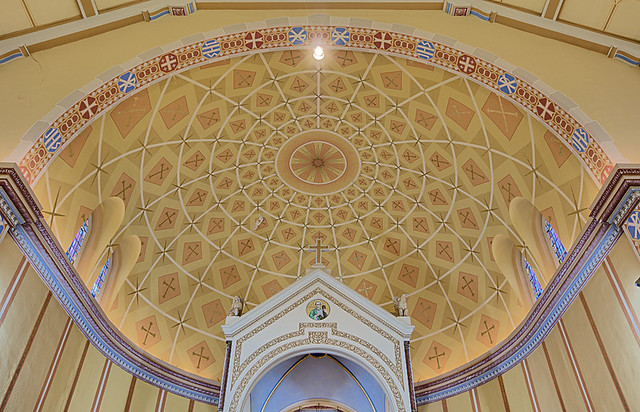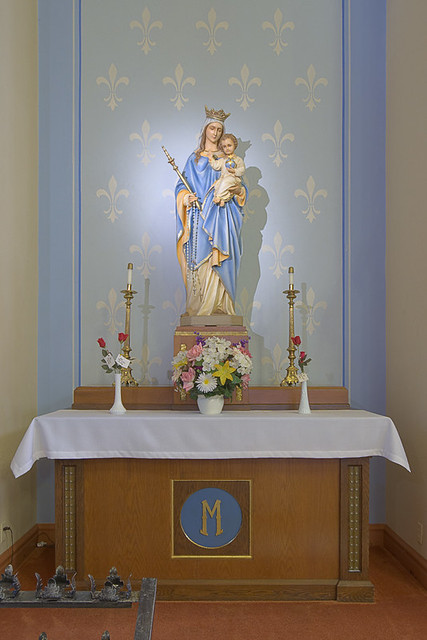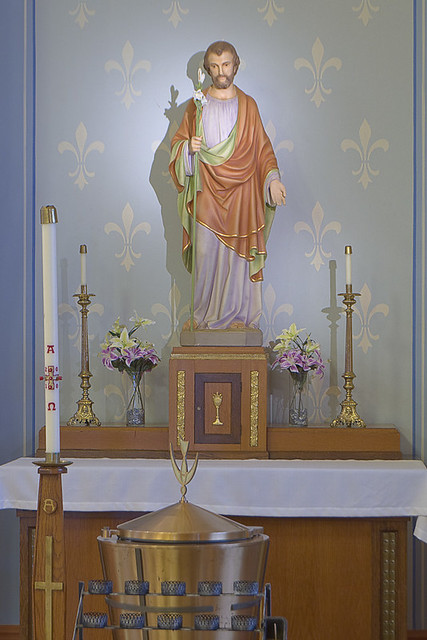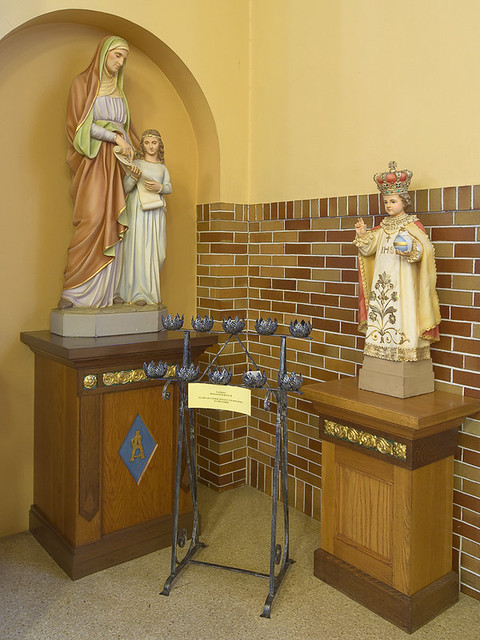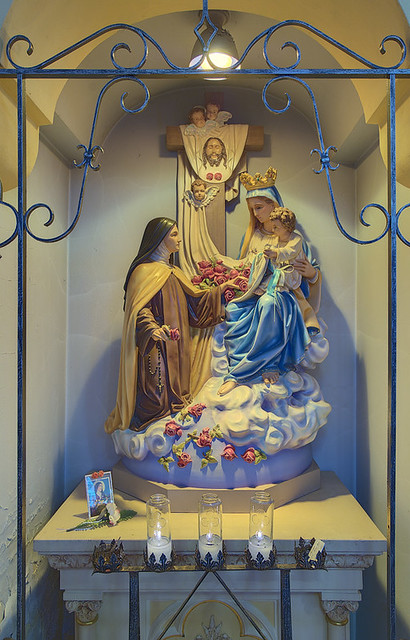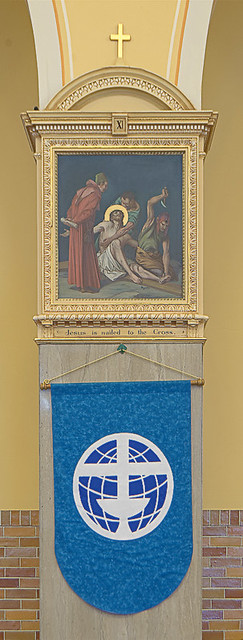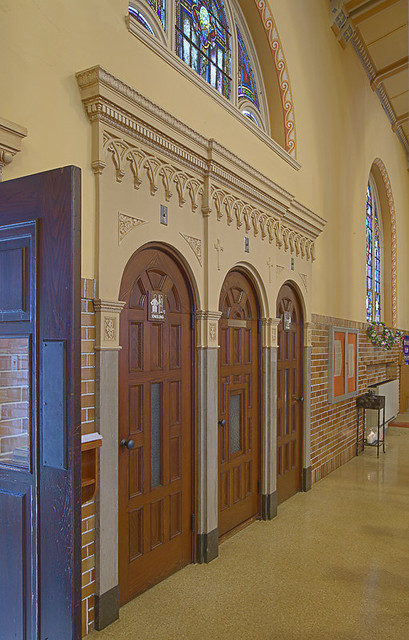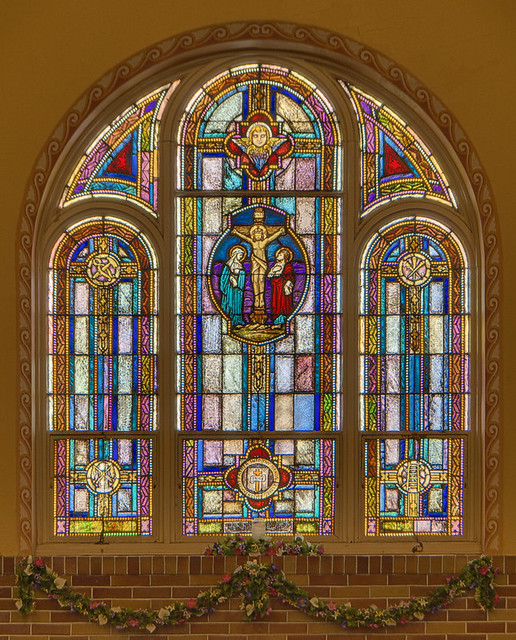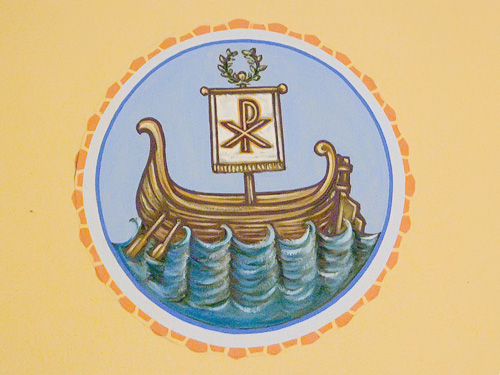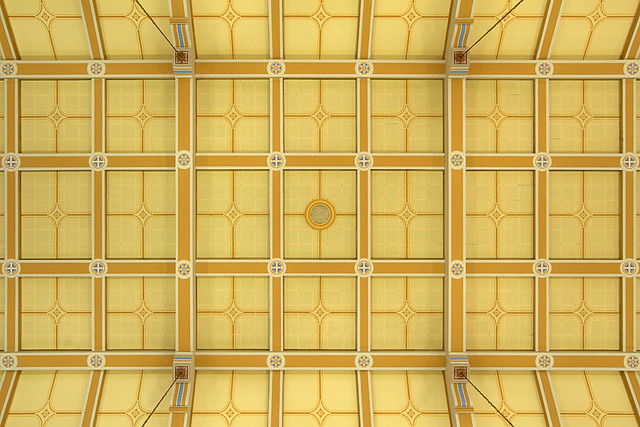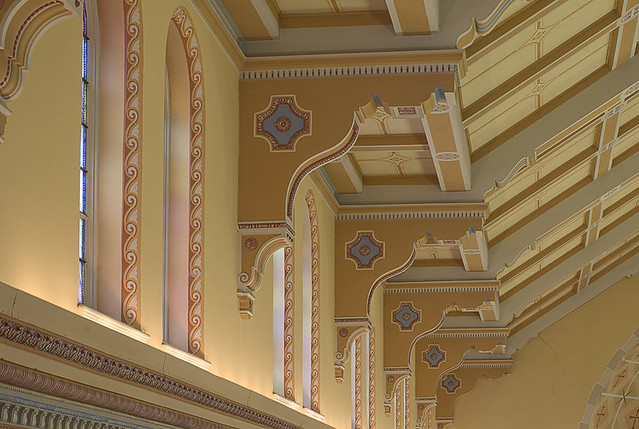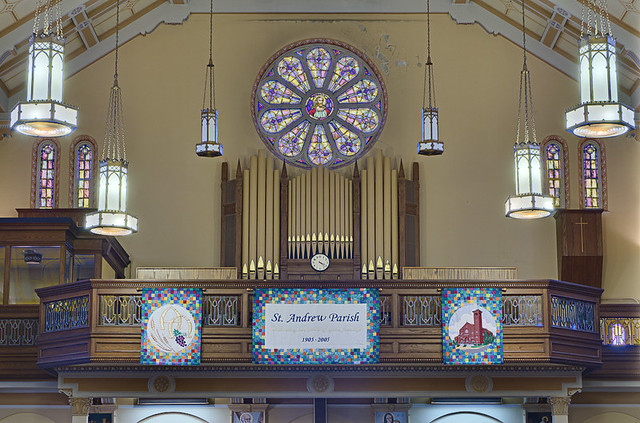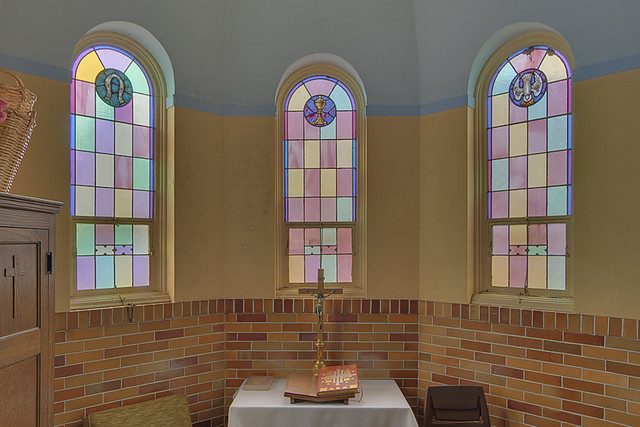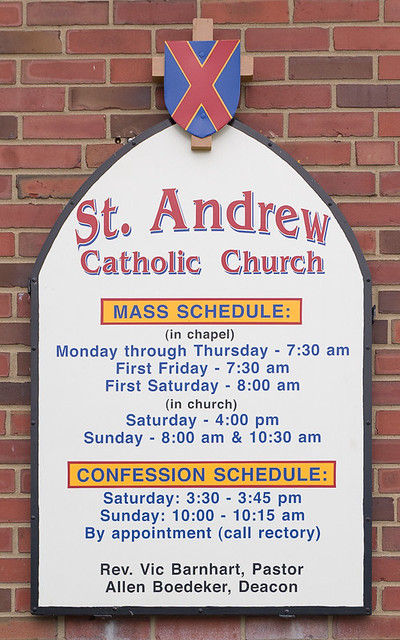
Cornstalks, in the Chesterfield Valley of Saint Louis County. Autumn has come upon us quite suddenly.
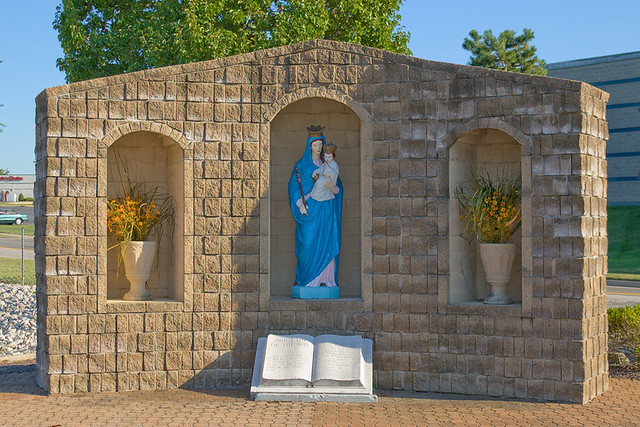
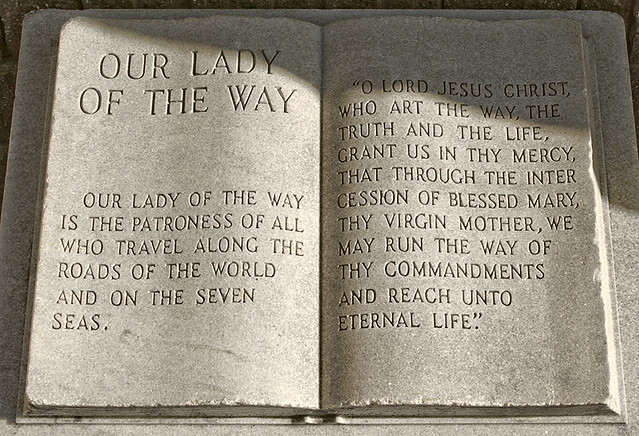
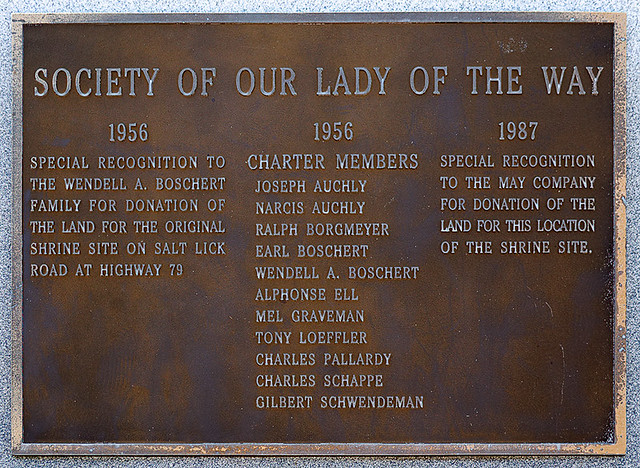


After twenty years of testing recipes on his fellow monks, Father Dominic of public television's Breaking Bread offers a surprising variety of pizza recipes sure to please every palate.Here is a recipe from the book:
With his customary detailed and easy-to-follow directions, Father Dom shows you how to make the perfect crust (the real key to first-rate pizza), flavorful homemade sauces, and savory toppings. You will discover how to tell when a “Big Ol’ Batch o’ Pizza Sauce” is thick enough, the way to avoid soggy crusts, and a “magic trick” to have warm, crusty bread waiting for your breakfast the morning after pizza night.
Recipes include three different doughs, nine sauces, and dozens of pizzas like the Pesto and Prosciutto Appetizer Pizza, Muffaletta Pizza, the Denver Diner Pizza, Pizza Diavolo, and the Fig and Papaya Dessert Pizza.


Four Cheese Tomato-Top PizzaHere is my photo of this pizza:
A blend of Italian cheeses mixed with herbs and topped with garden tomatoes— simple, beautiful, delicious.
Recommended crust: 14-oz. American style
6 oz. shredded mozzarella
4 oz. ricotta
2 oz. shredded provolone
2 oz. grated Romano
1 egg
½ tsp. nutmeg
¼ cup fresh snipped chives or garlic chives
16 to 24 slices of plum tomato
Drain tomato slices on paper towels for about 15 minutes. Roll dough out to 12"–14" with a thicker raised edge and place on a pizza peel dusted with cornmeal. In a medium-size bowl, combine cheeses with egg, nutmeg, and chives. Mix with hands until thoroughly blended. Spread cheese mixture evenly over pizza crust and arrange tomato slices on top. Bake in a preheated 500 ̊ F oven for 10–15 minutes, or until cheese starts to brown lightly. Salt and pepper lightly if desired.
Notes
—This is one of my favorite pizzas, especially when we have fresh tomatoes.The plum tomatoes are best, because they have more flesh and less juice, but other tomatoes work fine if you drain the slices on paper towels for at least 30 minutes before use. You can, of course, make this pizza without tomatoes, if you want a classic Quattro Formaggi pie—use an Italian-style crust.
—Try to get a strongly flavored, well-aged provolone, and don’t be afraid to ask the deli worker for samples. You can also experiment with other cheeses (parmesan, asiago, fontina, gorgonzola, etc.) or vary proportions. I make this pizza differently every time, depending upon what’s in the fridge and/or in the garden, and I’m never disappointed.
—If I make this pie for Thursday night haustus, I always make it last, in the hopes that leftovers will return to the kitchen, because this pizza is just about the best cold breakfast I have ever had.

Click here for the original article.In honor of King Saint Louis IX, patron saint of the city of St. Louis, the annual Summer at the Oratory celebration will take place on Sunday, August 22, from 12:00 noon to 7:00 pm.Come – one and all, and invite all your friends and family for a festive afternoon!In addition to being a fun event for the whole family – with music, games, a quilt raffle, country market, and great food and drinks, there will be terrific auction items available to benefit the restoration effort at St. Francis de Sales Oratory. For more information, contact the Oratory at (314) 771-3100.
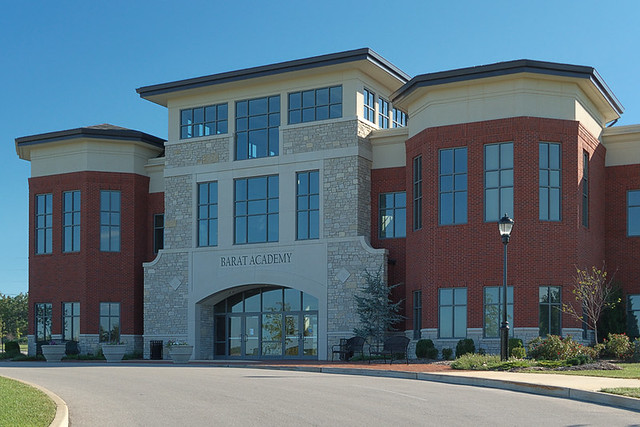
Prayers, please, for the consolation of a friend of mine.Act of Abandonmentby Saint Jane Francis de Chantal
O sovereign goodness of the sovereign Providence of my God! I abandon myself forever to Your arms. Whether gentle or severe, lead me henceforth wherever You will; I will not regard the way through which You will have me pass, but keep my eyes fixed upon you, my God, who guides me. My soul finds no rest without the arms and the bosom of this heavenly Providence, my true Mother, my strength and my defense.
Therefore I resolve with Your divine assistance, O my Savior, to follow Your desires and Your laws, without regarding or examining why You do this rather than that; but I will blindly follow You according to Your divine will, without seeking my own inclinations.
Hence I am determined to leave all to You, taking no part therein save by keeping myself in peace in Your arms, desiring nothing except as You make me to desire, to will, to wish. I offer You this desire, O my God, beseeching You to bless it; I undertake all it includes, relying on Your goodness, liberality, and mercy, with entire confidence in You, distrust of myself, and knowledge of my infinite misery and infirmity.
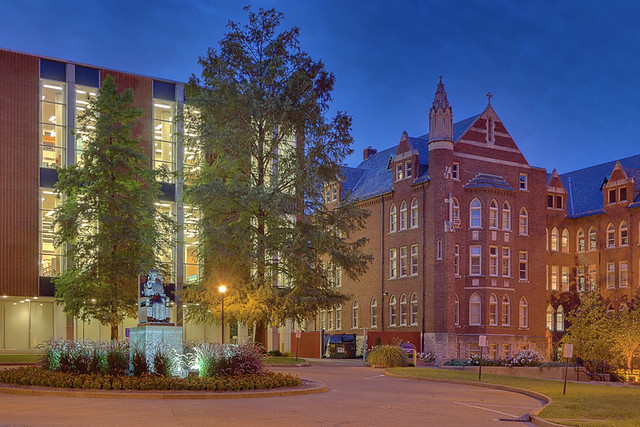
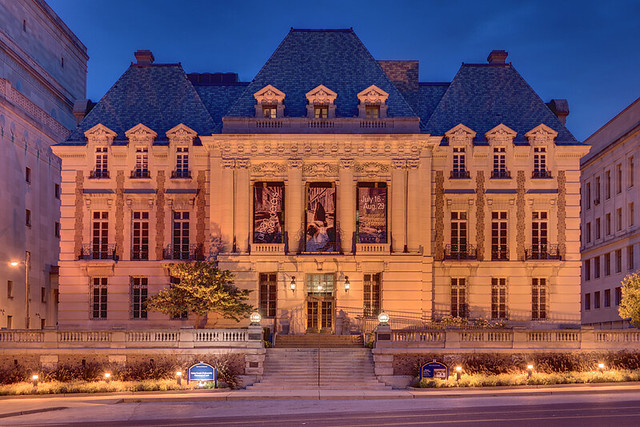
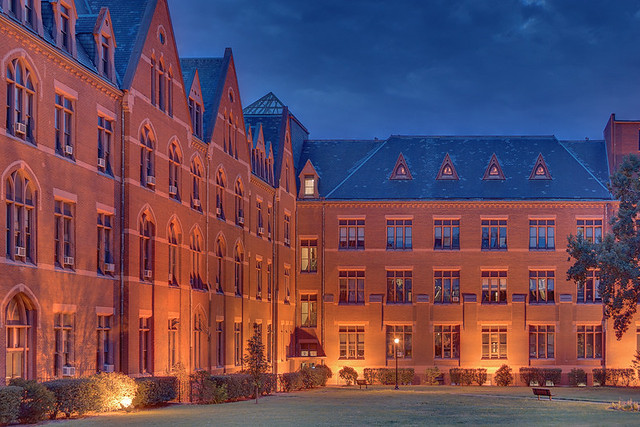
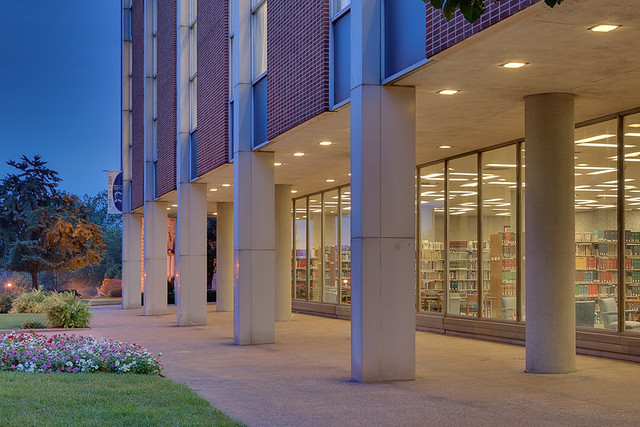
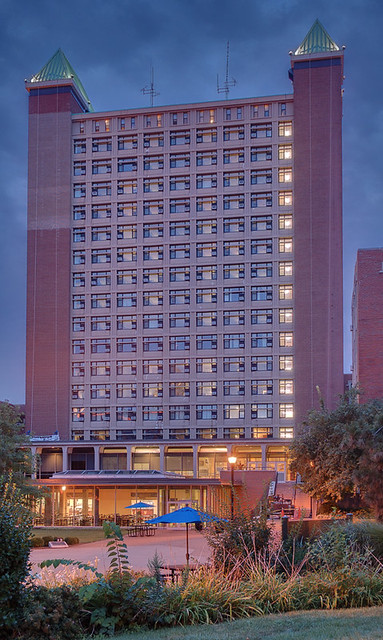
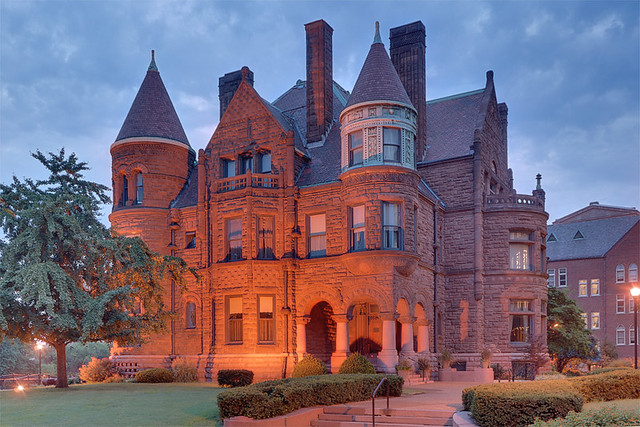
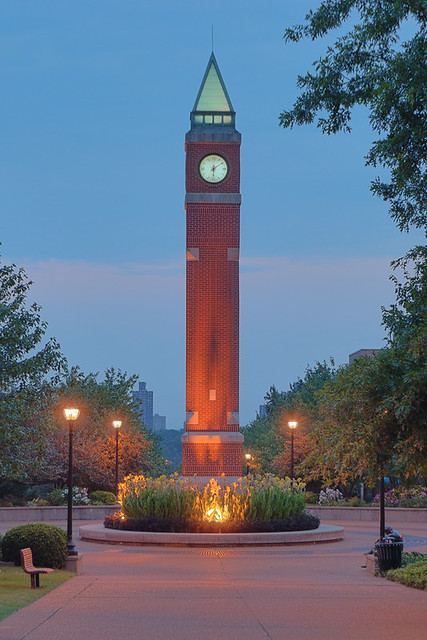

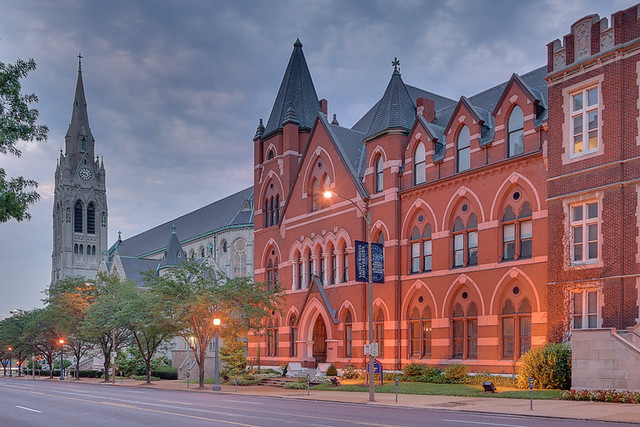
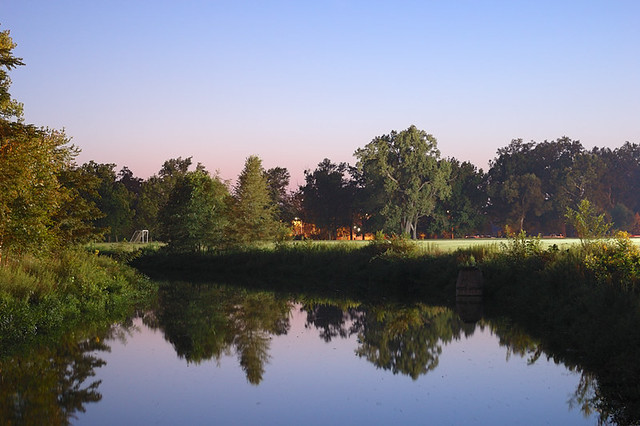
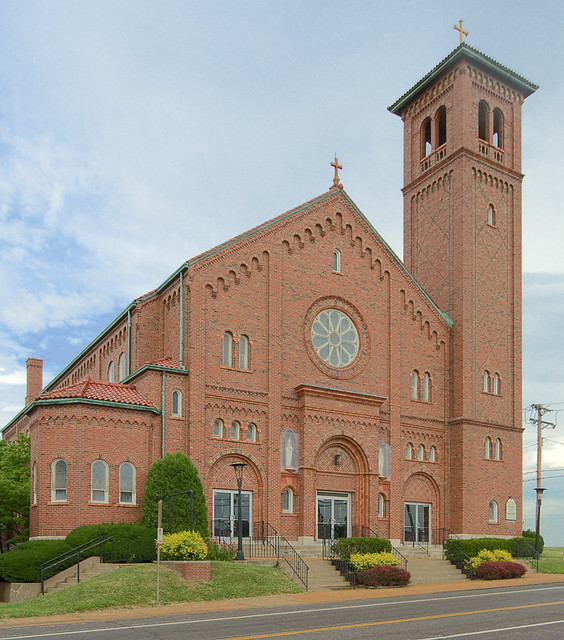
Following the World's Fair in St. Louis there was a rapid growth in the St. Louis area. This was reflected in many new Catholic parishes established at that time. One was St. Andrew. Archbishop John Glennon appointed Father Albert Mayer to be the first Pastor of a parish between the River Des Peres and Jefferson Barracks on December 24, 1904. Neighboring parishes were St. Boniface and Our Lady of the Assumption. The first Mass for the people was said February 5, 1905. There were 200 families at that time. Theodore Roosevelt was the President, and there were two Governors of Missouri that year, Alexander Dockery and Joseph Folk. The Pope was Pius X, the last Pope so far to be given the title of Saint.This church dates from 1930.
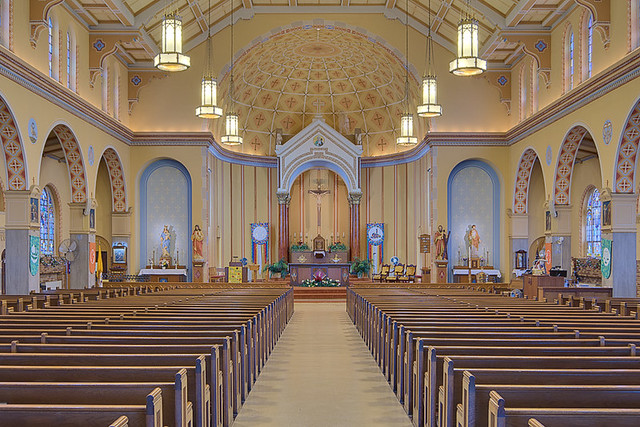
Deus in loco sancto suo: Deus qui inhabitare fecit unanimes in domoThis is a beautiful church; I ought to have visited years ago, considering how close I live to it. Many thanks to the parish staff and Deacon who let me take pictures here.
God in His holy place; God who maketh men of one mind to dwell in a house
The French were the first European inhabitants in what is present day Lemay. In 1700, the French Jesuits established a mission and small settlement near the mouth of the River Des Peres. The settlement was short lived and after three years the mission was transferred to Kaskaskia, Illinois. Development in the area did not resume until the second half of the 18th Century as a result of the growth of Carondelet.
Carondelet was a French settlement founded in 1767 by Clement Delor. The Lemay portion of Carondelet was located south of the River Des Peres and used primarily for agricultural purposes, known formally as Carondelet Commons. While vital to Carondelet's development in present-day St. Louis, use of the commons hampered development in Lemay. Land titles for the area were often disputed well into the 19th Century because of its status as a municipal common ground.
Lemay's identity as a separate community began to materialize between the Civil War and the Great Depression. Settlement was advanced by the resolution of the land disputes and from a surge of immigrants from St. Louis, mostly Germans. The immigrants led to the establishment of small communities in the area south of the River Des Peres such as Luxemberg, Ivory, Bismark Heights, and Bobringville. While many of these communities retained their identity, the area was most popularly referred to as Luxemberg. The area's identity as Lemay didn't take shape until the 1930s. The name Lemay is derived from the operator of the ferry service across the Meramec River, Francois Lemai.
By the turn of the 20th Century, various industries and businesses began to serve the local population and community services were established to transform the Lemay area into a functional, modern settlement.
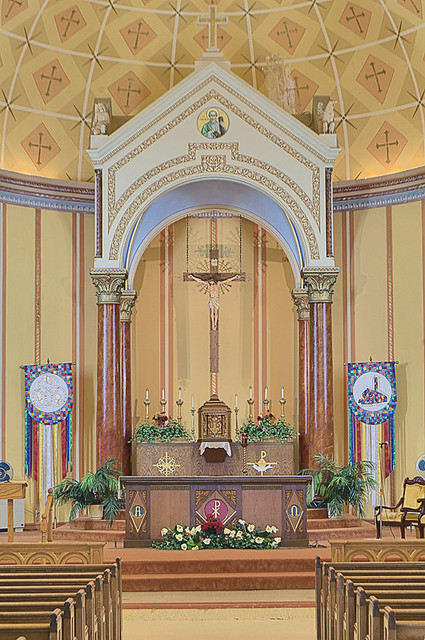
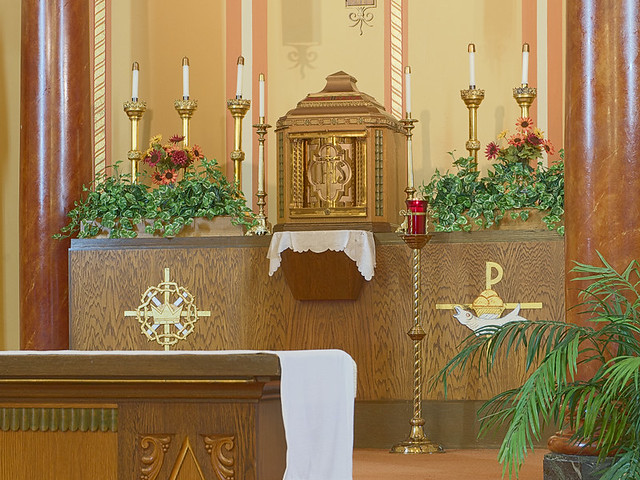
Domine, dilexi decorem domus tuæ, et locum habitationis gloriæ tuæ.
I have loved, O Lord, the beauty of your house; and the place where your glory dwells.
